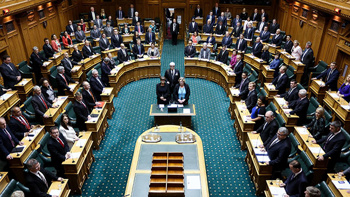
At the core of a successful public service must be an excellent education system. Preparing young citizens to live fulfilling and productive lives is crucial for individual wellbeing. But, equally as important, forging them into decent citizens with enough wisdom built on foundational knowledge of history, civics and basic economics, is vital to the wellbeing of society.
A broken education system leads to breakdowns in other areas of society. It produces young adults who are ill-prepared for working life and university. This results in a generation of workers who are less knowledgeable and skilled than their forebears and easily distracted by the things they have been coached to be confident on, such as grievances.
Even worse than an education system that fails to educate, is an education system that has become deeply politicised. Such a system prioritises producing young adults who think identically politically over teaching them skills and imparting information with which they can form their own opinions.
New Zealand finds itself in the unenviable position of failing to educate as well as being thoroughly politicised. This is the result of decades of internal activism.
The phrase “the long march through the institutions” was coined by Italian communist Antonio Gramsci and refers to a “soft” intellectual takeover of society via its institutions rather than through a bloody coup. The “long march” is profitable nowhere more than in the education system where it not only evolves the present, but also shapes future leaders and workers.
The New Zealand education system has been under ideological assault from activists for far longer than my own lifetime. However, the arrival of the Ardern administration in 2017 ushered in a period of accelerated “marching”. Curriculums have been reformed and social justice has been woven into the fabric of every lesson. Even mathematics hasn’t escaped politicisation.
This programme of speedy politicisation took place under Chris Hipkins, who only stood down from Minister of Education upon taking over as Prime Minister this year. The Labour man, who tends to play Mr Moderate, presided over one of the most radical programmes of the 2017-2023 governments.
Hipkins was aided by a ministry full of enthusiastic ideologues eager to dismantle “oppressive systems” and “decolonise” the New Zealand curriculum; including one of the new science curriculum’s biggest champions, the minister’s own mother, Dr Rosemary Hipkins. In 2019, Dr Hipkins was made a Member of the New Zealand Order of Merit for her services to science education and, while clearly she has academic mana, her work can be characterised as centring politics where it arguably should not.

Incidentally, she isn’t the only parent of a current Cabinet minister to be bestowed with such a prestigious honour. The following year, Minister Kelvin Davis’ parents received New Year’s honours. But that is another column, for another day.
Dr Hipkins is far from alone in her conviction that science, and education more broadly, must necessarily be politicised to be relevant and even to be imbued with virtue or worthiness. It is a perspective that is rife in the Ministry of Education. It is a worldview that has resulted in social justice being advocated for as a “critical maths pedagogical approach”.
The focus has shifted from imparting information, skills and wisdom to students to imbedding the “correct” values in them. Arguably this moves teachers and schools into the realm of parenting and the family.
Teaching students the “correct” Foucauldian power matrix and how to “check” their privilege necessitates hours of navel-gazing, hundreds of highly paid non-teaching roles, and endless conferences and seminars. This is an entrenched cultural force in our public service.
So, how to solve a problem like the ideologically rigid bureaucratic class that has the steering wheel of our education system?
National’s education spokesperson Erica Stanford has been saying a lot of the right things about getting back to basics and a return to structured literacy. However, she faces a seemingly insurmountable task in needing to overcome the behemoth of the Ministry of Education. It also remains to be seen if she will have the will to remove politics from classrooms when she is one of the National caucus’ most sympathetic to some of the “woke” ideas being perpetuated.
Will is something that Act leader David Seymour has in spades, however. He has no qualms about making tough decisions around the efficacy of parts of the public service. He is also a champion of charter schools, which would give parents more choice as to the level of politics they expose their children to.
Collaboration between Act and National on education will be necessary to achieve the change both parties claim to seek. Their success will depend on how firm Christopher Luxon and his Government are about political neutrality in the public service. Senior bureaucrats unwilling or unable to adjust to the directions of a National-led Government must go. Without emphatic demand for public servants to reform themselves and get on board with the new Government’s programmes, the tail will simply continue to wag the dog.
In this sense, the greatest challenge facing education in New Zealand is also the greatest challenge facing justice, health, transport, etcetera.
Take your Radio, Podcasts and Music with you









